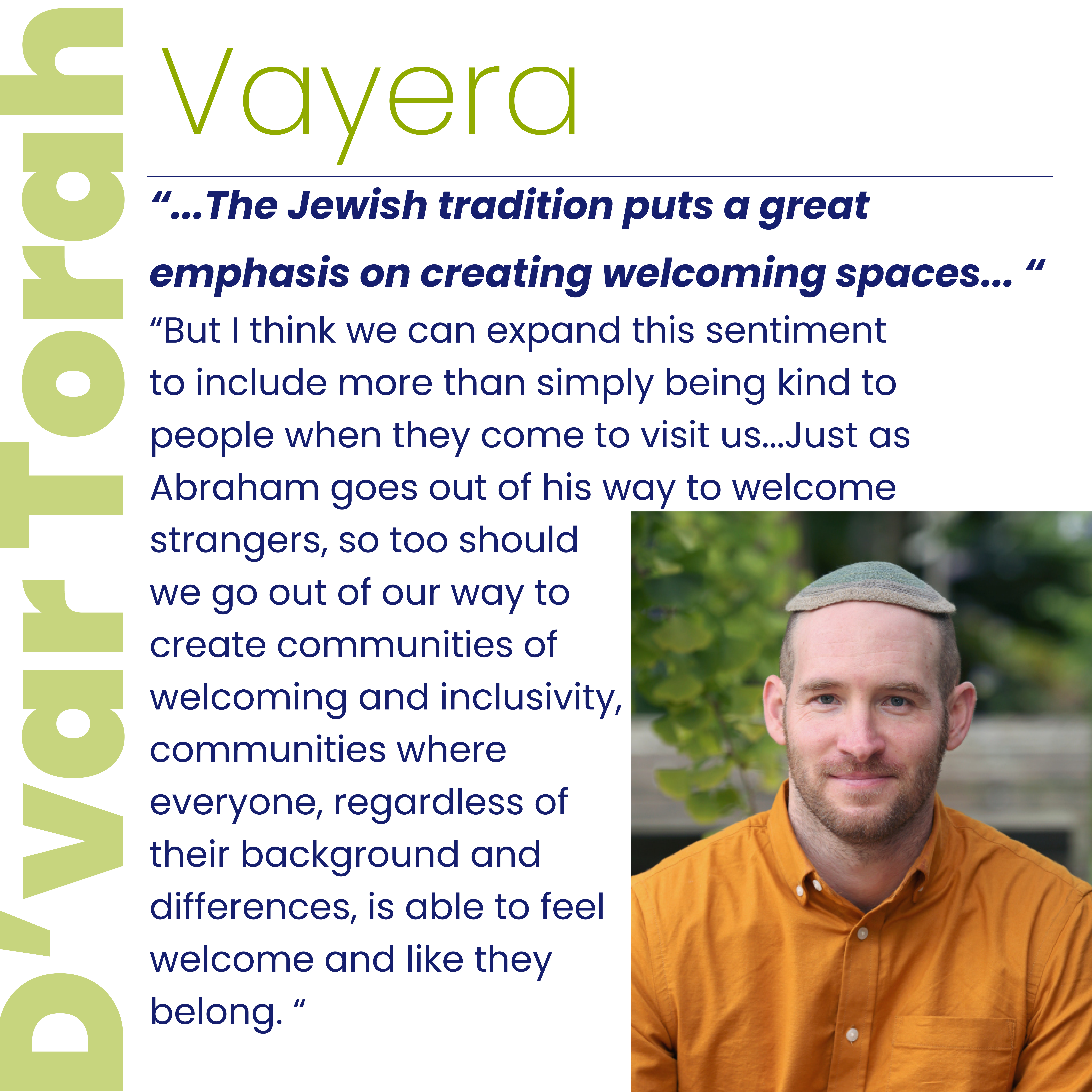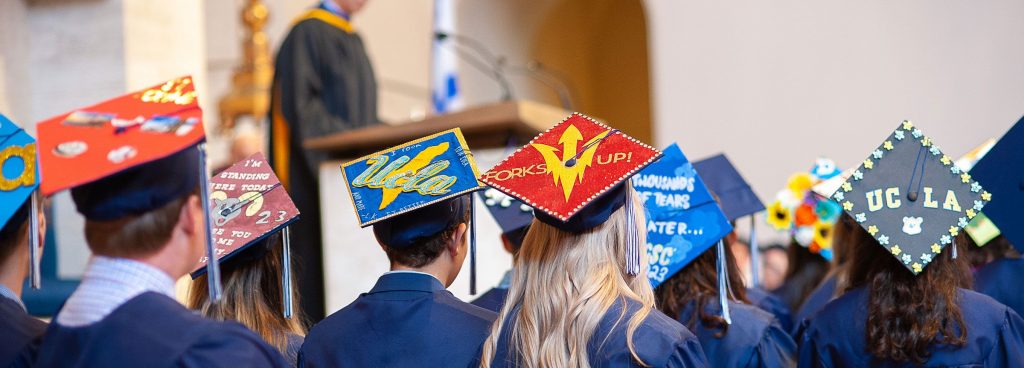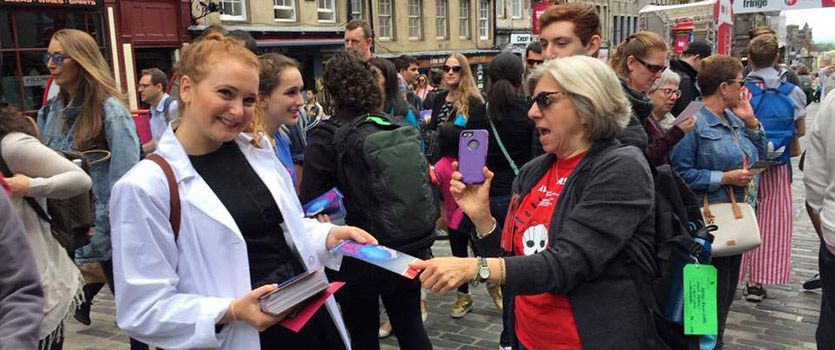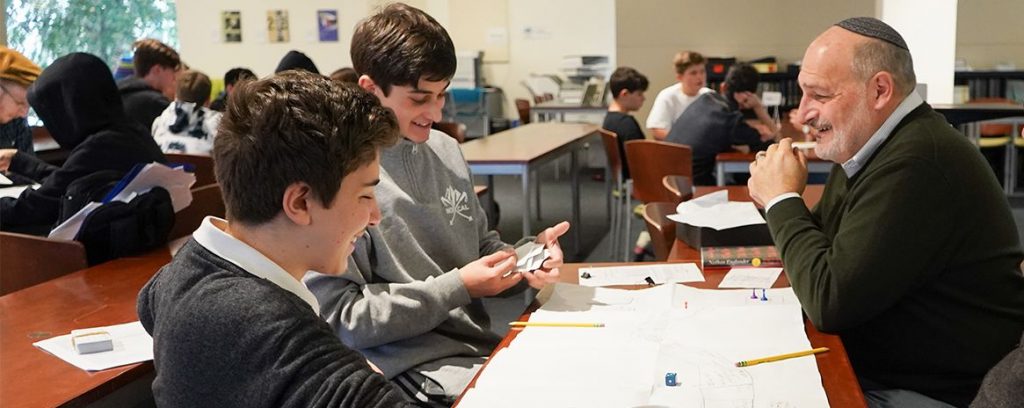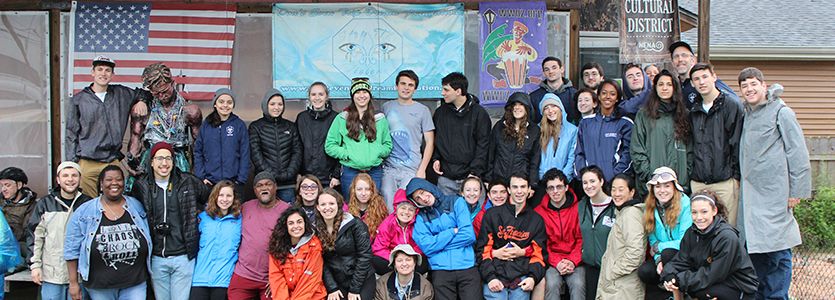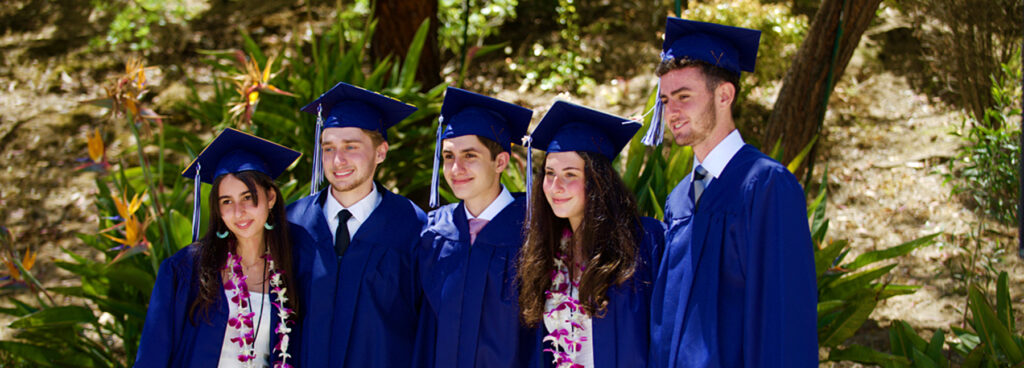Rabbi Joshua Buchin, Co-Dean of Students and Jewish Studies Teacher
In this week’s Torah portion, Vayera, we are shown the importance of welcoming guests. At the start of this week’s Torah portion, Abraham is recovering from his recent circumcision when he is visited by three men or angels. Despite Abraham’s age and the discomfort he is surely in, he rushes to attend to the needs of these three strangers, bowing before them, and preparing a meal for them.
This demonstrates the great lengths that we are supposed to go to welcome others. This value is reflected elsewhere in the Jewish tradition. The Talmud, the central Rabbinic text, tells us that welcoming is in fact one of the most important things we can do, perhaps even greater than any other spiritual act.
Rav Judah said in Rab’s name: Hospitality to travelers is greater than welcoming God’s presence (Babylonian Talmud, Shabbat 127a).
The Jewish tradition emphasizes the importance of welcoming repeatedly, as well as pointing out the dangers of disconnection, or a lack of welcoming. Elsewhere in the Talmud (Babylonian Talmud, Gittin 55b-56a), the rabbis explain that the destruction of the Second Temple by Romans in 70 CE was actually due to someone not feeling welcome at a party. For the Rabbis who wrote this story, the Temple being destroyed and the exile that followed was a disaster of cataclysmic proportions. When we have communities that are not welcoming, it in fact does feel like our whole world is destroyed, which was certainly how the destruction of the Temple was experienced at the time.
Clearly, the Jewish tradition puts a great emphasis on creating welcoming spaces. But I think we can expand this sentiment to include more than simply being kind to people when they come to visit us. There is also a powerful lesson here about the values that should be driving our communities. Just as Abraham goes out of his way to welcome strangers, so too should we go out of our way to create communities of welcoming and inclusivity, communities where everyone, regardless of their background and differences, is able to feel welcome and like they belong.
This is often hard work to do and may require us to go outside of our comfort zone. True diverse and pluralistic communities require everyone to be, at least at some moments, uncomfortable. But the reward is worth the struggle, for we are able to be in spaces that truly reflect the multiplicity of people, voices, and needs around us.
Let us take a lesson from this week’s Torah portion and strive to be like Abraham. Let us work to build communities that are truly inclusive, even if, as is the case for Abraham, we are making ourselves a little uncomfortable in the process. Let’s work together to create welcoming communities where everyone can feel a sense of belonging and wholeness.


